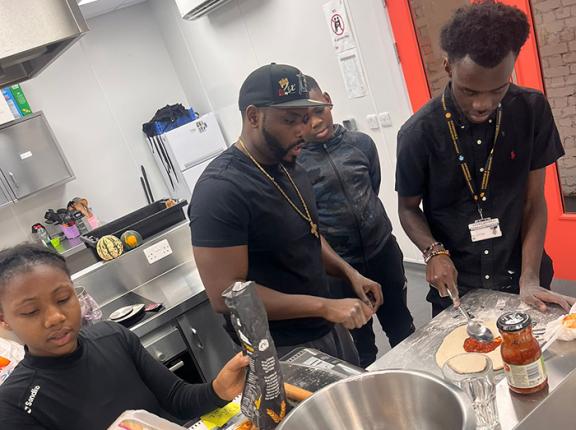Our hubs offer Haringey's young people somewhere to relax and socialise, enjoy themselves and learn.
Our current hubs are:
- Rising Green – Wood Green
- Bruce Grove Youth Space – Tottenham
- Project 2020 – Northumberland Park
- mobile hubs
Our youth service is for young people in Haringey who are aged between 11 and 19 (up to 25 years old where there is a specific additional need or disability or SEND).
We make use of a wide range of informal learning opportunities to enable young people to:
As well as delivering key programmes and activities, we support external and partnership projects to promote the same values and skills for young people.
Our hubs offer Haringey's young people somewhere to relax and socialise, enjoy themselves and learn.
Our current hubs are:


Support if you are looking for a job or an apprenticeship, willing to gain new skills or need employment advice.

Choices at 16: advice and guidance on what your options are, and opportunities available.

Information on the Haringey Virtual School, Young Adults Service, fostering, libraries, SEND Youth Space and much more.
Our vision is to establish our youth service as the foremost leader in empowering and supporting young people across the country.
Through a commitment to excellence, innovation and inclusivity, we aspire to create a transformative environment where every young person can realise their full potential.
By fostering a culture of creativity, resilience and social responsibility, we aim to equip youth with the skills, knowledge and confidence needed to:


This theme empowers young people to embrace confidence and realise their full potential.

This theme champions creativity as a cornerstone of our youth service.

Being a boss means empowering young people to take charge of their futures.

We empower young people by fostering personal growth, resilience and leadership.

We encourage innovation and creativity to nurture young people's interests, talents and passions.

We provide young people with essential skills and knowledge to thrive in a dynamic world.

We empower youth to build resilience, foster positive mental health and cultivate healthy lifestyles.